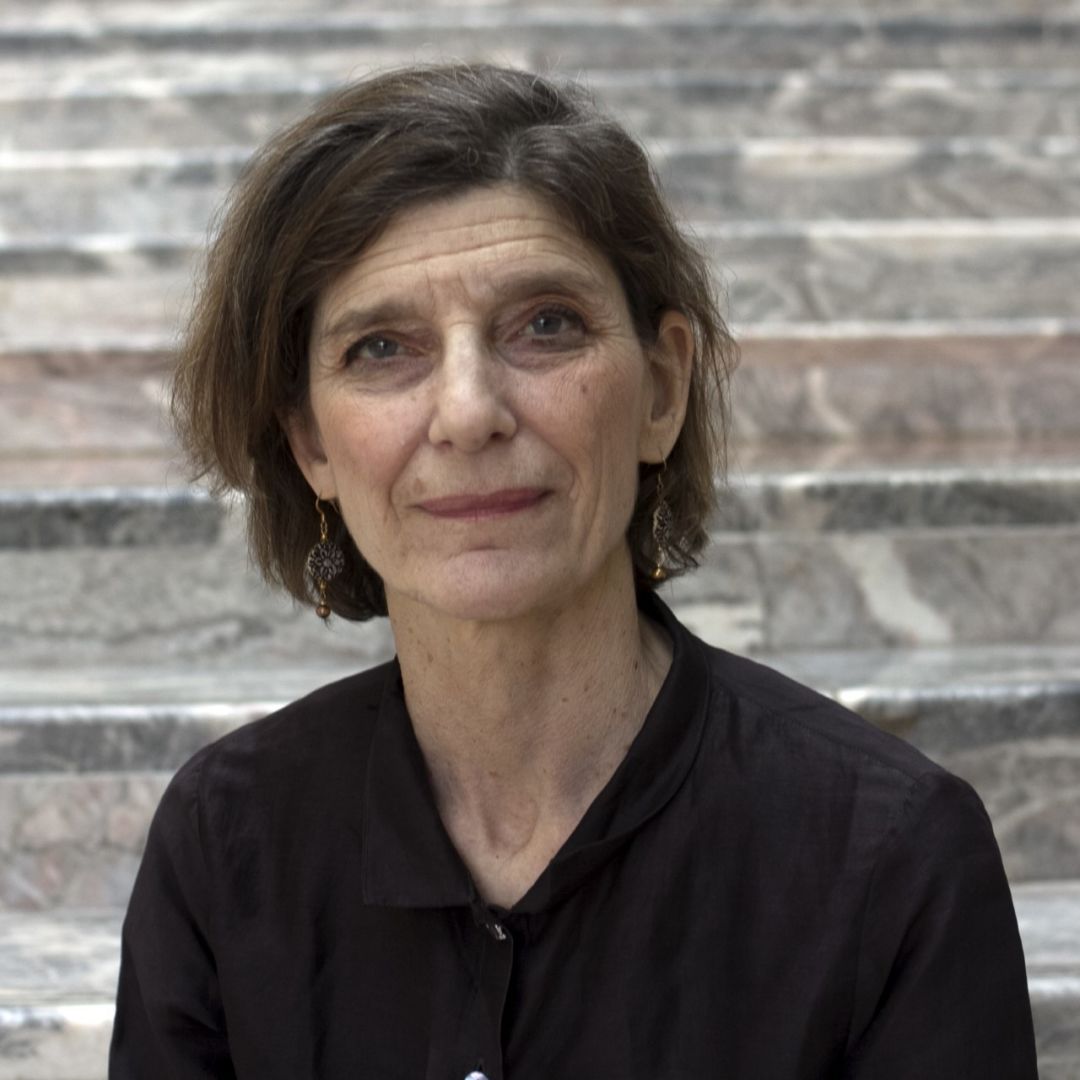Elena Ferrante's Translator Discusses the Difficult Work of Bringing Italian Fiction to English Readers

Ann Goldstein has translated the work of Elena Ferrante, Primo Levi, Elsa Morante, Pier Paolo Pasolini and many other Italian authors.
Image: E. Tammy Kim
If, over the past 15 years, you, like millions of other English readers, have found yourself enthralled with the novels of Elena Ferrante, you've also found yourself enthralled with the work of Ann Goldstein, Ferrante's longtime translator.
As fans know, the name "Elena Ferrante" is a pseudonym. The author's real identity, while much discussed, remains a mystery. "I believe that books, once they are written, have no need of their authors," she wrote in a 1991 letter.
Anonymity has not hampered Ferrante's popularity, which soared in the English-speaking world between 2012 and 2015 with the publication of a series of four books that are together known as the Neapolitan Novels. Ferrante's works are typically set in Naples, Italy, and examine the lives of women in volatile times, both in their family relationships and in Italian society at large. Ferrante is revered for her sometimes brutal, ruthless prose and the way she explores the emotional chaos of her characters' inner lives.
The former head of the copy editing department at The New Yorker, Goldstein won a competition to translate Ferrante's novel The Days of Abandonment, which was published by Europa Editions in 2005. She has since been tasked with bringing each of Ferrante's books to English readers. That includes the author's newest novel, The Lying Life of Adults, which came out earlier this month.
While Ferrante does grant the occasional written interview, she does no public events to promote her work. In her place, Goldstein is doing a handful of readings and interviews—including an upcoming Zoom event with Bookstore1Sarasota and Europa editor in chief Michael Reynolds that begins at 7 p.m. on Tuesday, Oct. 20. The cost is $28 and includes a copy of The Lying Life of Adults. Register online here.
Goldstein recently spoke with Sarasota Magazine about the process of translating Ferrante and other Italian authors. The interview has been condensed and edited for clarity.
Is it strange to do events as a translator on behalf of another writer?
"The first time I ever did it, I did it around the end of the Neapolitan Novels and I was really surprised that anyone was interested in what I had to say. People seem to have a need to have a person to focus their attention on when it comes to a book, whether it's the author or somebody else. But in this case, since the author doesn't make appearances, it kind of fell to me. Around this new book, it's been pretty intense. It wasn't something I ever expected to do in my life, believe me.
"One of the reasons that I like to do it is I think it's really important to bring attention to the translator. Otherwise, the translator very often gets lost. I'm sure you've read plenty of reviews of translated books where they quote big chunks of the book but they never say that the language of the person they're quoting is that of the translator, not that of the original writer. Of course, the translator didn't write the book, but the translator has brought you the book."
Can you tell us some about your process?
"I pretty much just dive in. Sometimes I read the book first and sometimes I don't. It depends on how much time I have. Basically, I do a pretty fast first draft—like a really messy, fast first draft. I look up the words but I don't refine anything. Once I have the first draft, I go back and I try to resolve most of the bigger problems and I try to smooth things out. Then I'll probably revise it several more times."
How do you know whether you're achieving what you want to achieve?
"In a theoretical way, I'm looking to convey the author in English the way the author sounds in Italian. I don't mean literally, but to make the author sound like him- or herself in English.
"It's easy to say that's impossible. I don't know if you've ever heard the Italian expression, 'Traduttore, traditore,' which means, 'The translator is the betrayer,' because the words are very similar. There's always an element of that. You're never going to find a word in English that conveys all of the same nuances as the word in Italian."
The new novel is set in the 1990s. Is Ferrante's language different than in the Neapolitan Novels, which are set more in the postwar era?
"No. She has a voice that's pretty particular. In a way, the biggest difference is that it's told from the point of view of a teenager. You don't get a sense of the older narrator looking at her life the way you do in the Neapolitan Novels, where you have a woman who's in her 60s looking back at her whole life and trying to put it together, trying to make sense of it. It is more immediate, in a sense. You feel like the "I" really is the teenager."
There is a volatility in the range of emotions in the new one that seems very real to adolescence.
"Yes, it does. She really gets into the mind of an adolescent girl, or any adolescent, in a very intensive way."
It takes you back to those feelings.
"Not in a necessarily pleasant way."

The cover of Elena Ferrante's new novel, The Lying Life of Adults, which was translated by Goldstein.
Image: Courtesy Photo
How do you know when you're done with a project, or is it the kind of situation in which you'd always be tinkering with it and at some point you just have to turn it in?
"I could always been tinkering with it. I try not to read published translations, because I'm always thinking, 'Why did I do that?' At a certain point, you feel like you've done what you can.
"I tend to read the first round of galleys, so that's another read when I might find things to fix up. They're usually small things. In a funny way, the same problems keep coming back. Some things are straightforward, but then there are sentences or phrases that you never feel are quite right, and so you keep going back to them. In the late drafts, there are always things that are circled or marked to reconsider. But, like any writer, you have to stop at some point."
Since starting to translate Ferrante, you've also translated books by Primo Levi, Pier Paolo Pasolini and Elsa Morante. Were those projects that came to you, or were they projects you wanted to bring to English readers?
"Primo Levi came to me. There was an editor who had this vision of doing the complete works of Primo Levi in English. I had read some Levi, but I hadn't read all of Levi, and it turned into this huge project. It's three volumes, 3,000 pages.
"In the beginning, there were certain existing translations and we were just going to collect the existing translations and put them together, look them over. But then we realized that Levi had actually not been well-published in English, and a lot of his books were published in pieces. He wrote a lot of things that were short stories or short chapters and they were not published in the versions in Italian. In the end, we ended up re-translating almost everything."
How did the Morante book Arturo's Island come about?
"She's a really fascinating writer, and it turns out that, when you start looking closely, Ferrante was very influenced by her. So that's another whole layer of interest. Like Arturo's Island, what's it about? It's about a teenager coming of age with very intense feelings about everything. There are certain similarities. You could say they're accidental, but there's something about the intensity of the voices."
It seems like Ferrante's success has opened up more interest in Italian female writers, like Natalia Ginzburg, for example. Do you think that's true?
"Of course, I'd like to think so. There have been more Italian women writers being published and more interest in Italian women writers.
"Certainly, more attention is paid now to translated literature, but the number still stays around 3 percent. Of that, the number of women translated is really tiny. But I do think there's been more interest in Italian women, definitely."
Why do you think these books strike a chord with Americans today?
"The Ferrante books tell a story where, even though the details aren't familiar, everybody has those relationships. We all have parents or partners or children or friends, and there's something about the way she examines those relationships that I think people relate to. They're illuminating. She examines these relationships in a way that can be kind of uncomfortable, but it shows you something. In the new book, we all have been this teenager or we can relate to those teenage emotions, and she shows them to you in a really detailed and kind of harsh way."
You mentioned the low amount of new books that are translations, but, at least anecdotally, it seems like we're living in a golden age for translated literature. Do you agree?
"I think that's true. I won't say it's a brilliant career choice. It's very hard to support yourself just on translating. I always said that my day job supported my habit."



